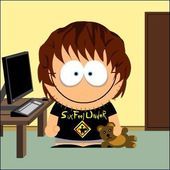There are two books you should absolutely own as reference -- The first is as Bregma mentioned: The C++ Programming Language by Bjarne Stroustrup, and the second is The C++ Standard Library by Nicolai M. Josuttis. You'll be wanting the most recent editions of both, 4th and 2nd respectively. These should be on every serious C++ programmer's bookshelf -- I buy mine in hardcover. Both of these books will give you a lot more depth than any one place on the internet will, especially if you're interested in history or theory.
For a very quick, but surface-level review of a language, I've had good experiences with O'Reilly's Pocket Reference books. They're small and inexpensive, but they'll hit enough of the high points to be able to re-familiarize yourself with the basics of features you don't use often. For example, when I've interviewed for jobs in the past where the gig uses a language I haven't actively used for awhile, I find these books to be a great, quick refresher, and since they're inexpensive (usually < $10) I can always just go buy the latest one.
After that, Scott Meyers' Effective Modern C++ (1st) and Effective C++ (3rd) are also something you should at least read, if not own. There's also More Effective C++ but its very aged at this point because it never got a second edition or update -- still, there are probably some gems of wisdom in there so I would say its a read if you can get your hands on it, but don't buy unless maybe you find a really cheap used copy -- Even Effective C++ is starting to age, but its 3rd edition is new enough to be a worthwhile addition to your bookshelf.








